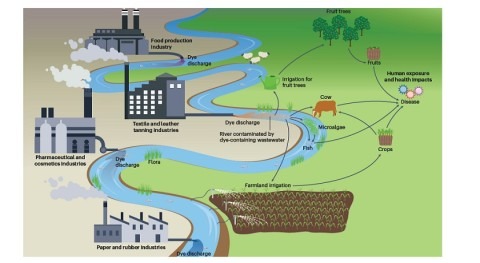The first-ever detailed study of climate anxiety among the UK adult population suggests that whilst rates are currently low, people’s fears about the future of the planet might be an important trigger for action when it comes to adapting our high-carbon lifestyles to become more environmentally friendly.
Interest in climate or eco-anxiety – characterised by the American Psychological Association as the chronic fear of environmental doom that comes from observing the impacts of climate change – has risen over recent years. A high-profile University of Bath study in 2021 found it to be particularly prevalent among young people right across the world.
This latest study, led by a team from the Centre for Climate Change and Social Transformations, also based at the University of Bath, sought the views of 1,338 UK adults over two time points (in 2020 and 2022) to delve deeper into the prevalence of climate anxiety, factors that predict it, and whether it could predict individual behavioural changes and climate action.
Despite over three-quarters of the UK public saying they are worried about climate change, only 4.6% of the public reported experiencing climate anxiety in 2022 (only fractionally higher than in 2020, when 4% reported this). Younger people and those with higher generalised anxiety were more likely to experience eco-anxiety.
Despite over three-quarters of the UK public saying they are worried about climate change, only 4.6% of the public reported experiencing climate anxiety in 2022
However, climate anxiety was not always a negative; for many it could be a motivating force for taking action to reduce emissions. This included saving energy, buying second-hand, borrowing, renting or repurposing items. Lifestyle changes such as cutting down on red meat were not related to climate anxiety, despite being highly effective for reducing emissions.
Significantly, the study found that media exposure – for example TV images of raging storms or heatwaves - rather than direct, personal experiences of climate impacts predicted climate anxiety. The authors say there are important implications of these findings for organisations responsible for communicating climate change.
The study published in the Journal of Environmental Psychology coincides with a new briefing paper from the Centre for Climate Change & Social Transformations focused on UK public preferences for low-carbon lifestyles. Its analysis suggests that lifestyle changes (for example, reducing car use or eating less meat), are increasingly seen as both feasible and desirable.
Environmental psychologist at the University of Bath, Professor Lorraine Whitmarsh MBE, led the study. She explained: “With increasing media coverage of climate impacts, such as droughts and fires in the UK and devastating flooding in Pakistan, climate anxiety may well increase. Our findings suggest this can spur some people to take action to help tackle the issue – but we also know there are barriers to behaviour change that need to be addressed through more government action.”
In the paper, the authors emphasise the importance of the media as a motivating force for the lifestyle changes required as we decarbonise. They suggest that the media and public discourse about climate anxiety has the power to create a positive vision for a greener, cleaner future which is significantly less dependent on fossil fuels.
Lois Player, co-author of the study also from the Department of Psychology at the University of Bath, explained: “Our results suggest that the media could play an important role in creating positive pro-environmental behaviour change, but only if they carefully communicate the reality of climate change without inducing a sense of hopelessness.”












